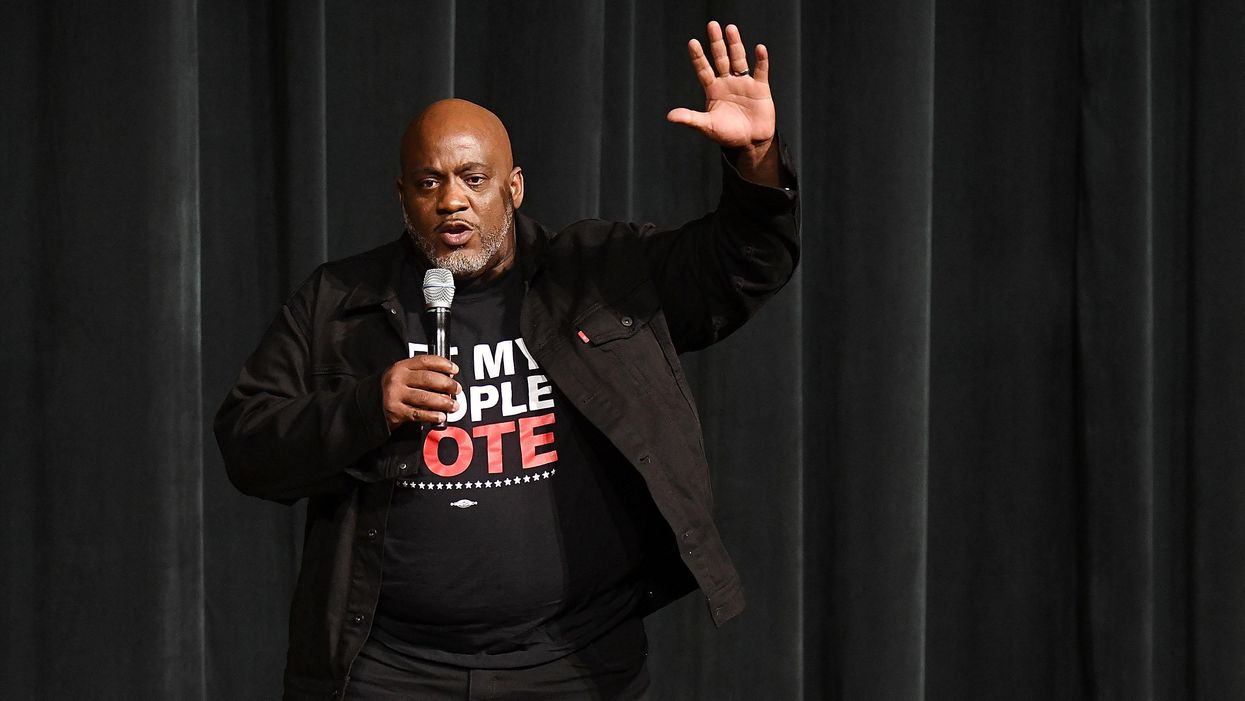Nationally recognized voting rights advocate Desmond Meade, who has helped thousands of former felons like himself regain the right to vote, was again denied a pardon from Florida Gov. Ron DeSantis on Wednesday.
At the same time DeSantis rejected Meade's pardon, the Republican governor also approved changes to the clemency process that could expedite rights restoration for people with past felony convictions.
Floridians passed an amendment in 2018 to restore voting rights to the state's 1.4 million ex-felons, but legislative and logistical barriers have kept many disenfranchised.
As president and executive director of the Florida Rights Restoration Coalition, Meade has been instrumental in the fight to restore voting rights to ex-felons in Florida. Two years ago he was recognized by Time Magazine as one of the 100 most influential people in the world after spearheading the 2018 ballot measure campaign.
Since experiencing drug addiction, homelessness and a felony conviction in 2001, Meade has turned his life around and earned a law degree. But due to his felony record, he cannot become a member of the Florida Bar unless he receives a pardon.
This is the second time DeSantis has denied Meade a pardon. His request was first rejected last September.
DeSantis said he denied Meade a pardon due to his dishonorable discharge from the military three decades ago. "As a former military officer, a dishonorable discharge is the highest punishment that a court martial may render. I consider it very serious," he said.
But Meade says he was a victim of political infighting because his pardon request was supported by Agriculture Commissioner Nikki Fried. As Florida's only statewide elected Democrat, Fried is seen as a potential challenger to DeSantis in next year's gubernatorial election.
Fried, who's also a member of the state's Clemency Board, has been critical of DeSantis' handling of rights restoration to former felons since the amendment's passage three years ago. Following the governor's decision on Wednesday, she decried the denial of Meade's pardon as "hypocritical grandstanding."
"This Governor continues denying rights to a deserving Floridian in Desmond Meade on the basis of a long-ago military dishonorable discharge, but had no issue with appointing a Chief Administrative Judge who had been discharged for poor conduct from the Navy," she said in a statement.
"At the end of the day, the decision not to grant me a pardon is purely a political decision and I just happen to be a casualty of a war that's going on, a disagreement that's going on between the governor and our commissioner of agriculture," Meade told reporters in Tallahassee on Wednesday.
In the same meeting in which pardons were considered, DeSantis and the state Clemency Board also approved changes to expedite the clemency process for former felons. Those who have paid all their fines and fees can now apply for full rights restoration without needing a hearing before the board. Officials said this will streamline the process to reduce the backlog of cases.
The changes also waived the five- and seven-year waiting periods implemented in 2011 by then-Gov. Rick Scott.
While it's unclear how many Floridians will have their cases expedited, Meade said the new rules will help make the process less cumbersome and lengthy for thousands of returning citizens. He added that this victory outweighed his personal loss.
However, issues still remain with the state government's poor record-keeping of outstanding fines and fees for ex-felons. Because many don't know what they owe, if anything, they have been unable to have their voting rights restored.




















Trump & Hegseth gave Mark Kelly a huge 2028 gift